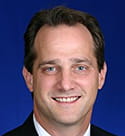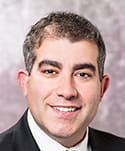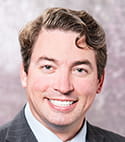Graduates of the UPMC Horizon General Surgery Residency
2025
Andrei Gritsiuta, M.D., Ph.D.
Cardiothoracic Surgery
University of Texas Medical Branch, Galveston, TX
Adnan Hassoune, M.D.
Private Practice
Western Arizona Regional Medical Center, Bullhead City, AZ
2024
Alexandra Drymon, D.O., M.H.S.A.
Private Practice
Lincoln County Medical Center, Ruidoso, NM
Jorge Lara-Gutierrez, M.D.
Private Practice
Camden Clark Medical Center, Parkersburg, VW
2023
Matthew Sturdivant, D.O.
Trauma & Surgical Critical Care
Christiana Care Hospital; Wilmington, DE
Tijani Osumah, M.D.
Colorectal Surgery
Ascension Providence/MSUCHM; Southfield, MI
2022
Patrick Downs, D.O.
Vascular Surgery
University of Toledo; Toledo, OH
Karisa Beebe, D.O.
Breast Oncology
Christiana Care Hospital; Wilmington, DE
2021
Ryan Enders, D.O.
Private Practice
North Oaks Medical Center; Hammond, LA
Kristin Kennedy, D.O.
Surgical Critical Care/Trauma
Massachusetts General Hospital; Boston, MA
John Muhonen II, D.O.
Vascular Surgery
University of Iowa; Iowa City, IA
2020
Sarah Brown, D.O.
Vascular Surgery
West Virginia University; Morgantown, WV
Nicki Downes, D.O.
Breast Oncology
Cleveland Clinic Akron General; Akron, OH
2019
Michael Morrison, D.O.
General Surgery
The US Army
Emily Zayshlyy, D.O.
Surgical Critical Care
Christiana Hospital; Wilmington, DE
2018
Benjamin Raymond, D.O.
Private Practice
United Hospital Center; Bridgeport, WV
2017
Derek Polecritti, D.O.
Plastic and Reconstructive Surgery
Mercy Hospital; Des Moines, IA
2016
Marc Campbell, D.O.
Surgical Critical Care/Trauma
University of Tennessee; Knoxville TN
Melissa Loveranes, D.O.
Surgical Critical Care/Trauma
University of Pittsburgh; Pittsburgh, PA
2015
Tracy McCoy, D.O.
Private Practice
Phelps Health Medical Group; Waynesville, MO
2013
Nicole Geissen, D.O.
Cardiothoracic Surgery
Rush University; Chicago, IL
Gregory Clabeaux, D.O.
Vascular Surgery
University of Buffalo; Buffalo, NY
2011
Lee Farber, D.O.
Minimally Invasive Surgery
Baystate Medical Center, Tufts University; Springfield, MA
Stephen Bayuk, D.O.
Private Practice
Newberry County Memorial Hospital; Spartanburg, SC
2009
Ralph Kelley, D.O.
Trauma & Surgical Critical Care
University of Nevada; Reno, NV
2008
Marc Polecritti, D.O.
Plastic & Reconstructive Surgery
Cleveland Clinic Health System; Warrensville Heights, OH
2007
Christopher Esper, D.O.
Vascular Surgery
Cleveland Clinic Health Systems; Warrensville Heights, OH
2005
Danielle Duchini, D.O.
Breast Surgery
The Washington Cancer Institute; Washington D.C.
Jennifer Beatty, D.O.
Private Practice
The Breast Place; North Charleston, SC
2003
Brock Generalovich, D.O.
Plastic & Reconstructive Surgery
Cleveland Clinic Health Systems; Warrensville Heights, OH
2002
Armando Sciullo, D.O.
Private Practice
Grove City Medical Center; Grove City, PA
Erik Branstetter, D.O.
Private Practice
Mitchell County Regional Health Center; Osage, IA
1997
Norris March IV, D.O.
General Surgery
Hillsdale Hospital; Hillsdale; MI
1996
Conrad Manayan, D.O.
General Surgery
Ascension Saint Thomas River Park; Kennesaw; GA
















 Leslie Elmore, DO
Leslie Elmore, DO Khaled Abdul Jawad, MD
Khaled Abdul Jawad, MD Jeremy Santarelli, MD
Jeremy Santarelli, MD Emilie Fromm, DO
Emilie Fromm, DO






 Jon Henwood, D.O.
Jon Henwood, D.O. Christopher Esper, D.O.
Christopher Esper, D.O. Michael Morrison, D.O.
Michael Morrison, D.O. Christopher Myers, M.D.
Christopher Myers, M.D.